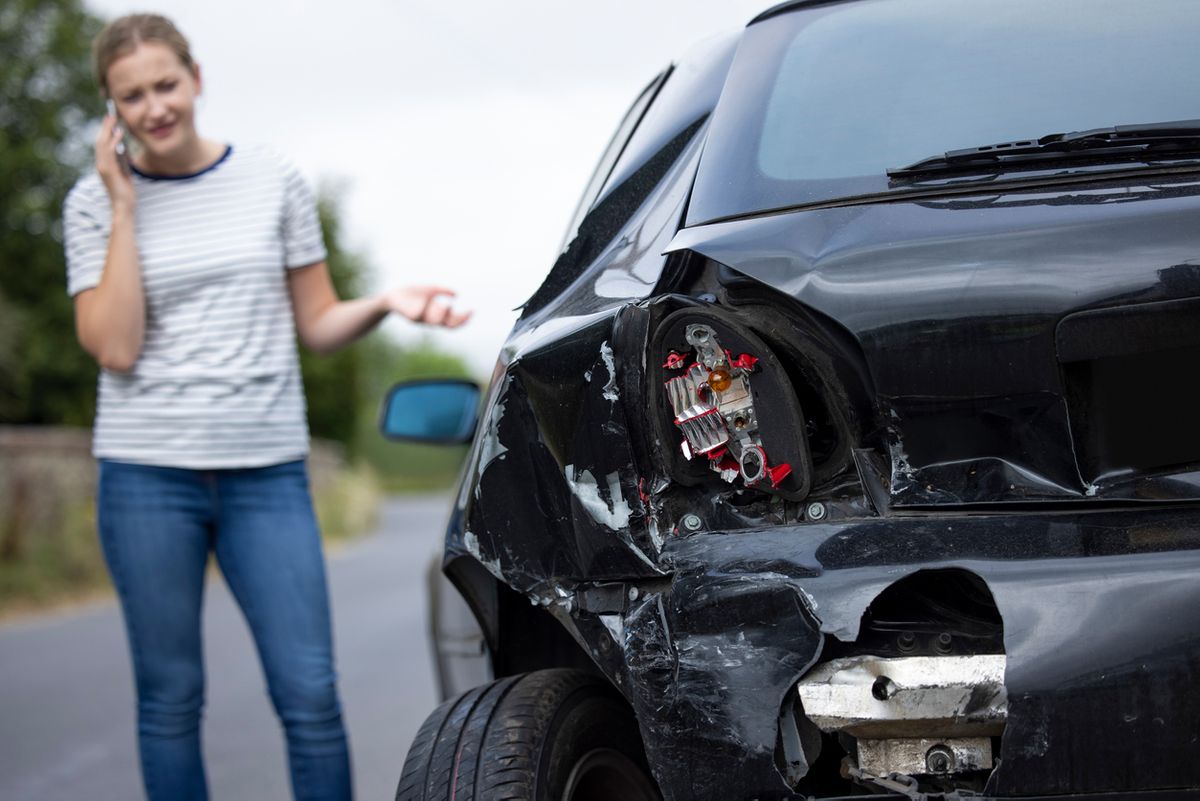If you are a victim of a motor vehicle accident (MVA), you need to be aware of your rights and how to obtain compensation. The meanings of the following terms used in MVA legal actions can help you understand the process.
What is a motor vehicle accident (MVA)?
An MVA, also known as a "car accident' is a collision with another vehicle, a pedestrian, an animal, or a stationary object such as public and personal property. A lamp post or tree along a street is public property while a family's white picket fence or carport is private property. Motor vehicles range from motor scooters to semis. If the vehicle has a motor, it is a motor vehicle.
What does an initial investigation entail?
After the injured, if any, are treated, the priority is an initial investigation of the accident. Law enforcement officials, insurance adjusters, and attorneys use this information in issuing tickets, referring a driver to the court system, paying claims, and trying court cases. The investigation must begin as soon as safely possible. Persons involved and bystanders can record information using notepads and cameras while waiting for law enforcement to arrive. Documentation is needed for the following:
- Insurance companies and policy numbers for all vehicles involved
- Contact information of all people involved
- Description of injuries and debris
- Damages to vehicles and property
- Names and contact information of eyewitnesses
- Skid marks
- Unusual weather conditions such as fog, rain, and snow
- Unusual road conditions that may have contributed to the accident such as debris, potholes, and flooding
When law enforcement officers arrive, they will obtain this information and more. They will check to see if drivers' licenses and vehicle registrations are current. They will determine if a vehicle is safe to drive and that the driver is not impaired. Arrests may be made if an obvious crime has occurred, and citations will be issued if warranted. Additional investigation may continue after the event.
This evidence is crucial in cases of serious injuries and vehicle damage. In most cases, the driver at fault will be liable for the damages.
What if the MVA causes injuries?
Serious injuries require a 911 call. The patient should explain they were in an MVA and a meticulous record of injuries must be made. This evidence will serve as proof of the nature and severity of injuries. However, a collision can result in injuries that do not show up immediately. After an accident, all passengers should be alert for signs and symptoms of soft tissue injuries (bruises), back injuries (pain and spasms), and concussion. The signs of a concussion that do not show up immediately include the following:
- difficulty concentrating and remembering
- headache and blurry vision
- nausea and dizziness
- unexplained fatigue and abnormal sleep patterns
It is critical to seek immediate medical attention for delayed symptoms for the sake of your health and to document conditions that you may be compensated for.
How to file an insurance claim
An MVA insurance claim is a request for financial compensation from your insurance company. You may be paid for vehicle repairs and sometimes a rental car while the work is being done. You may be paid for injuries sustained in the accident. If you were at fault, you are liable for the accident. Your insurance probably covers liabilities, which are damages and injuries you caused to other vehicles, property, and persons.
To file a claim, call the insurance company or your agent. The company will require documentation if a police report is available. If there is no police report, they will want proof of vehicle damages. Sometimes, all you need are photos demonstrating the damages to the vehicle. Medical costs must be documented by bills from the medical facility and your medical records. Insurance companies usually assign an adjuster who determines how much you will be paid for damages and injuries. All policies are not alike, so you need to read the fine print. You may feel more comfortable if an attorney reviews your claim, particularly if you are not satisfied with the adjuster's assessment.
Your insurance company will advise you if you need to have your vehicle repaired by a particular shop or if you need to obtain your own estimate and arrange repairs. Some pay you directly, and other companies pay the repair facility.
Who is responsible for medical bills?
To obtain medical treatment related to an MVA, the medical facility may expect you to pay the bill at the time of treatment. Medical insurance generally does not cover costs that are covered by a vehicle insurance policy. Thus, medical providers want assurance they will be paid.
Personal injury protection (PIP)or no-fault insurance, covers medical expenses if you are at fault as well as if you are the victim. Evidence of this coverage should be sufficient to assure the medical facility that they will be paid. If you do not have PIP, you may request a letter of protection (LOP). The attorney working on your case, depending on the specifics of the case, will provide an LOP to your medical provider. The letter promises that medical expenses will be paid out of future recovery if the suit is settled in court or outside of court. If funds recovered through a lawsuit are not enough to pay the medical bill, the patient will still be liable. However, the bill will not be due until the court proceedings are concluded.
What is a demand package?
The demand package is the injured party's case for restitution. The letter details the facts of the accident and the medical treatment received as a result of the accident. It includes medical bills, pain and suffering, lost wages, and other factors that harm the injured person's life. This package begins negotiations that lead to a settlement. An attorney will assure that every negative impact is noted and documented. Then settlement negotiations can begin. Some claims are settled out of court when both parties agree the settlement is fair. If an out-of-court settlement is not possible, the case will go to court.
When the settlement is agreed to, the injured party will receive a written notice of settlement distribution. This details funds due to the claimant and when they are due plus funds that go to the attorney. It also states what funds will be paid to medical providers to settle outstanding bills.
What is the difference between a settlement and a lawsuit?
A settlement is a legally binding agreement among all parties on the amount of the settlement and when the funds will be paid to the claimant. Settlements are not forged in court. If the parties involved disagree on the settlement amount, a lawsuit will be submitted to the court, starting this way the litigation process. settlement can still be reached before the lawsuit is filed or even the day the lawsuit reaches court.
What happens in court?
In most cases, MVA cases are settled out of court. If a case goes to court, most states require that a jury, not a judge, decide the key issues. In court, the case proceeds in three stages. First, a jury is selected, next, the plaintiff and defendant make their cases, then the jury reaches a final decision. When negotiating a settlement, the services of an attorney are desirable to obtain the best outcome. If the case goes to court, an attorney is not required, but the vast majority of claimants secure legal defense to assure the best outcome.
Do I need an attorney?
The attorneys at The IGWE Firm offer free consultations in MVA cases. They will explain the legal process to you and advocate for your rights. After you have all the pertinent facts, you will decide if legal representation is the right course for you.
We practice law in Pennsylvania, New Jersey, Deleware, Maryland, the District of Columbia, and New York and look forward to assisting you with all of your legal needs.

